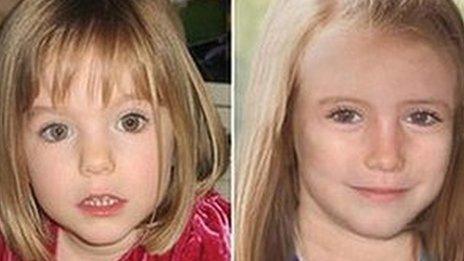Madeleine McCann case: Portuguese police reopen inquiry
- Published
BBC Crimewatch highlighted the new evidence around Madeleine McCann's disappearance
Portuguese police have reopened their inquiry into the disappearance of British girl Madeleine McCann, the public prosecutor's office has said.
Madeleine, from Leicestershire, was three when she disappeared from Praia da Luz in the Algarve in May 2007.
Portugal's attorney general said "new elements of evidence" justified the "continuation of the investigation", which was shelved by police in 2008.
Madeleine's parents said they hoped for "the answers we so desperately need".
Scotland Yard began a review of the case in May 2011 - codenamed Operation Grange - and opened a formal investigation in July this year.
Portuguese police said a review team had been working since March 2011 to look back through information from the original investigation - and this process had uncovered potential new lines of inquiry.
'Best opportunity'
The decision comes after Scotland Yard said at a briefing earlier this year that the Portuguese inquiry would not be re-opened until judges there were convinced there were solid grounds to do so.
It would appear that this decision is highly significant, BBC home affairs correspondent Danny Shaw said.
Assistant Commissioner Mark Rowley and Det Ch Insp Andy Redwood met senior Portuguese police in Lisbon last Thursday for a briefing on the new lines of enquiry, which are "separate" to those being followed by the Met.
Madeleine's parents, Kate and Gerry McCann, were also briefed on the case during the meeting.
They said they were "very pleased" the Portuguese inquiry, which will run alongside the Met operation, was being reopened.
"We hope that this will finally lead to her being found and to the discovery of whoever is responsible for this crime," they said.
Theresa May: "I hope it will enable a resolution to this terrible thing that happened to the McCann family"
"We once again urge any member of the public who may have information relating to Madeleine's abduction to contact the police in Portugal or the UK."
Mr Rowley, assistant commissioner for specialist crime and operations, said the meeting was "very positive" and both forces had a "shared determination" to solve the case.
"I believe that we have the best opportunity yet to finally understand what happened to Madeleine," he said.
UK Home Secretary Theresa May welcomed the development, saying: "I hope what we are going to see is a resolution of this case for the sake of Maddie's parents and family."

Thursday 3 May 2007: Timeline
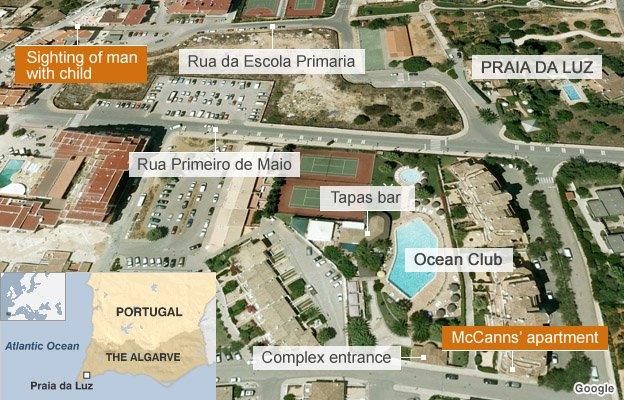
20:30 Kate and Gerry McCann leave their apartment to have dinner at a Tapas bar
21:05 Gerry McCann checks on Madeleine and her siblings
22:00 A man is seen carrying a child wearing pyjamas heading towards the ocean
22:00 Kate McCann raises the alarm that Madeleine has gone missing

Madeleine went missing from her family's holiday apartment on 3 May 2007, as her parents dined with friends at a nearby tapas bar.
The three-year-old and her brother and sister were left in the apartment at 20:30, with their father checking on them at 21:05.
Mrs McCann raised the alarm at 22:00 when she realised Madeleine was gone.
Since then there has been much speculation about what happened to the youngster.
In July, the Met said new evidence had come to light, and last week an appeal launched on BBC Crimewatch prompted 2,400 responses.
Met detectives released two e-fits of a man seen carrying a child in Praia da Luz at 22:00 on the night Madeleine went missing and it was revealed that they now suspected Madeleine could have been taken later than previously thought - just before her mother returned to the apartment to check on her.
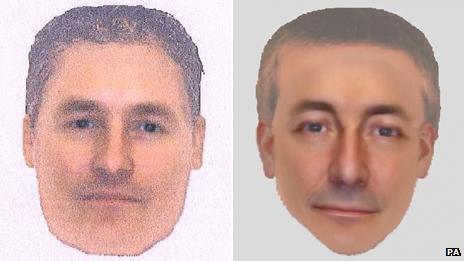
The images are based on statements and descriptions from two witnesses
The Met are offering a £20,000 reward for information.
They say their inquiries have led to the "accepted version of events" surrounding Madeleine's disappearance being significantly changed.
Det Ch Insp Andy Redwood said further appeals on similar programmes in the Netherlands and Germany had led to hundreds of calls.
The next stage of the appeal will be in Ireland later this month.
On Wednesday, Met Police Commissioner Sir Bernard Hogan-Howe defended the way Portuguese police had handled the initial investigation into Madeleine's disappearance.
"I'm sure for them that must have been a challenge. Anybody can go back after two, three, five, six years and say 'why didn't you do that'? That's easy in hindsight," he said.
- Published13 June 2014
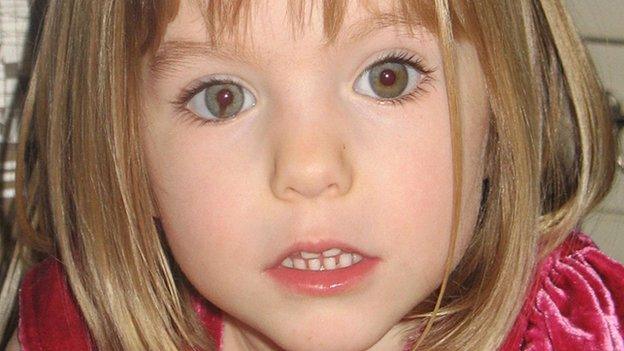
- Published24 October 2013
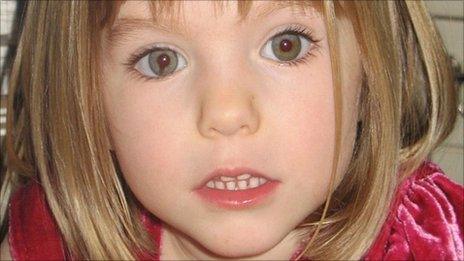
- Published17 October 2013
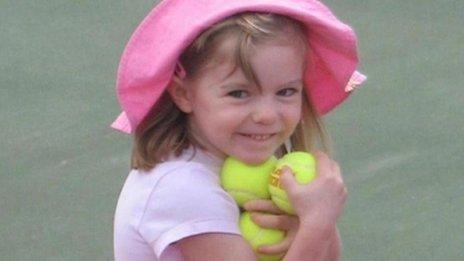
- Published15 October 2013
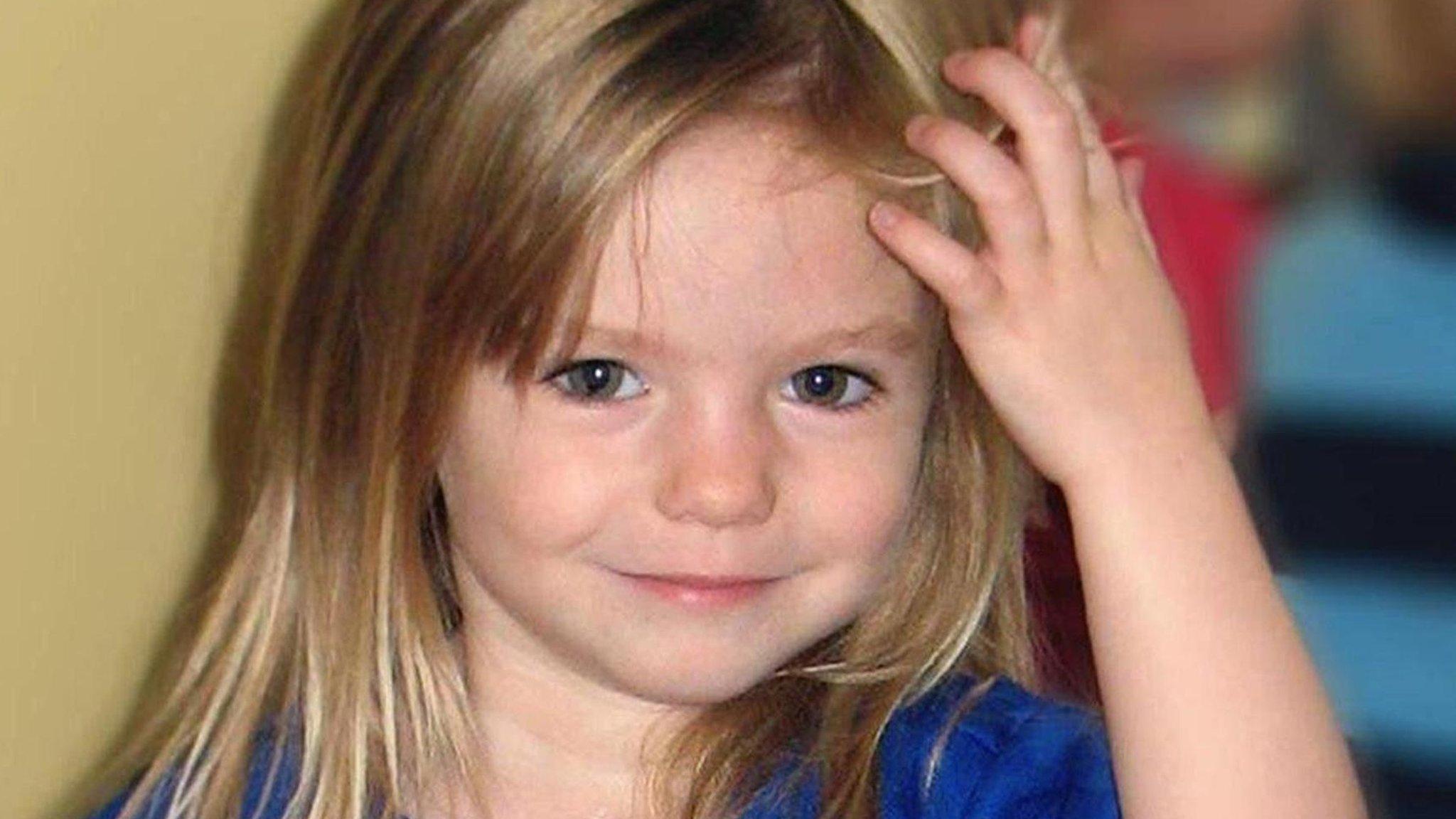
- Published15 October 2013
